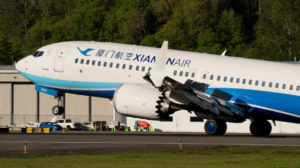How will 5G change the world?

By Barry He —
It’s 5G this and 5G that. It seems that all we hear in the world of technology is how this exciting new revolution will affect everything, from how smart cars and fridges work to healthcare and education.
As incessant as the news always is in regard to 5G, there are good reasons for this. The technology is expected to level up how the world connects with each other, and, according to Qualcomm, it is expected to create 22 million jobs worldwide. The global economy is also set to receive a huge boost – to the sum of $12.3 trillion.
So, what exactly is 5G? How could you explain it to your five-year-old (assuming they don’t already know, which cannot be assumed)? Perhaps unsurprisingly, 5G is the 5th generation of mobile networking technology, meaning as always, an increase in speed and a lowering in latency.
Everything is set to be connected to the internet and digitized. There are currently three bands of 5G. Sub 1GHz will offer cheap and widespread national coverage; 3.4-3.8 GHz will be the mainstream frequency layer probably used the most; 6GHz, meanwhile, will have the highest bandwidth with the lowest latency.
Speeds in these aforementioned bands may reach well in excess of up to 1GB per second. We have come a long way, and this is faster by an order of several magnitudes when one considers the very first primeval WAP-enabled phones in 1999.
It is hard to predict specifically what a huge increase in such general infrastructure will entail – think how hard it would have been to predict the discovery of steel purifying processes in the age of iron. However, a few sectors of industry and the economy already pushing the boundaries with 4G will no doubt benefit highly from 5G.
For example, the retail sector is worth billions of dollars, and China, especially, is capitalizing on using personalized data and marketing. Forget the days of tacky email adverts, consumers will one day be able to walk into a store and be greeted with a tailored shopping experience for each individual suited to specific preferences and tastes.
The 5G advances in augmented reality will mean customers can be virtually dressed in their new attire. Being able to try on more dresses virtually means finding the right one faster, and an inevitable increase in sales. All this, of course, requires fast data.
The car industry is another beneficiary. Lower latency is a huge deal for the growing prospect of autonomous cars. In these situations, reaction times matter and lower latency speeds could bridge the millisecond between life and death. A huge amount of data (estimated to be around several Terabytes per hour) will be processed in real time to ensure that self-driving cars can maneuver themselves safely on our roads. Specifically, 5G will be the catalyst for this already exciting market on the horizon.
Very much in the same manner, healthcare worldwide could also be accelerated with new faster internet capabilities. Just as the new generation of cars, it will be able to stream colossal amounts of data simultaneously, promoting use of remote wearable medical devices for patients.
We already have a wearable technology industry expected to reach $25 billion this year; in the future, with 5G, patients may be monitored in real time for any issues, and wearers can be provided with preventative advice. This will be a game changer for healthcare providers across the world and potentially both increase quality of care while reducing cost.
These are just some of the exciting areas in which 5G can change the world based on current trajectory. However, at the end of the day, it is a tool, which will increase people’s capacity to interact with it in any way they wish. This is something almost impossible to predict.
Several years ago, when 4G first came along, the increase in bandwidth enabled the sending and receiving high quality video content; however, nobody predicted the rise of social media giant apps such as Snapchat and TikTok, or their huge economic impact on generation Z and how we all consume media. Although we don’t know exactly what, expect innovation further down the road for 5G, too.
Barry He is a global technology and business commentator based in London, initially specializing in start-ups and technology PR.
Source : china. org.cn August 2019
Image : A visitor looks at his smart phone at second day of Mobile World Congress 2019 in Barcelona, Spain recently.Photo/VCG














